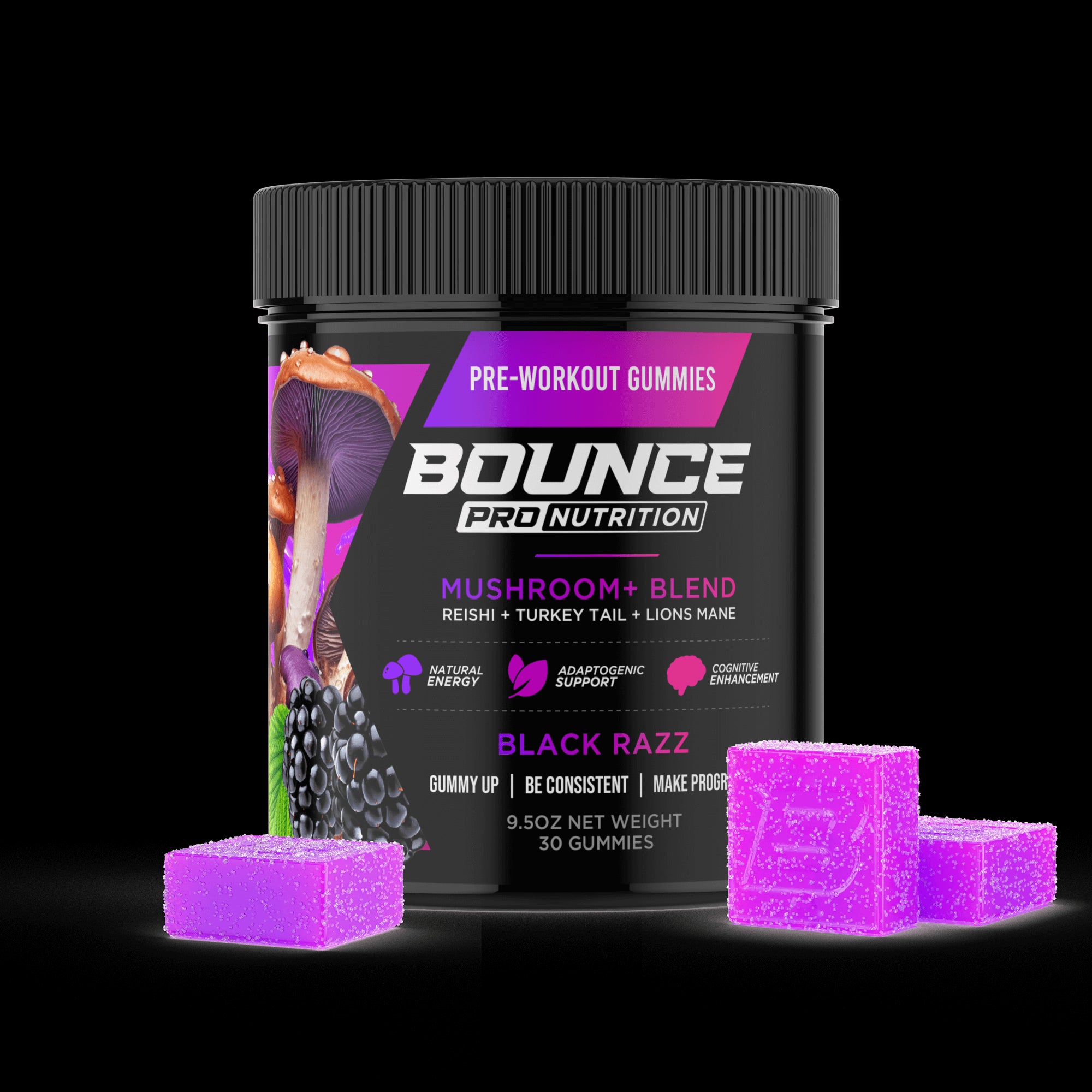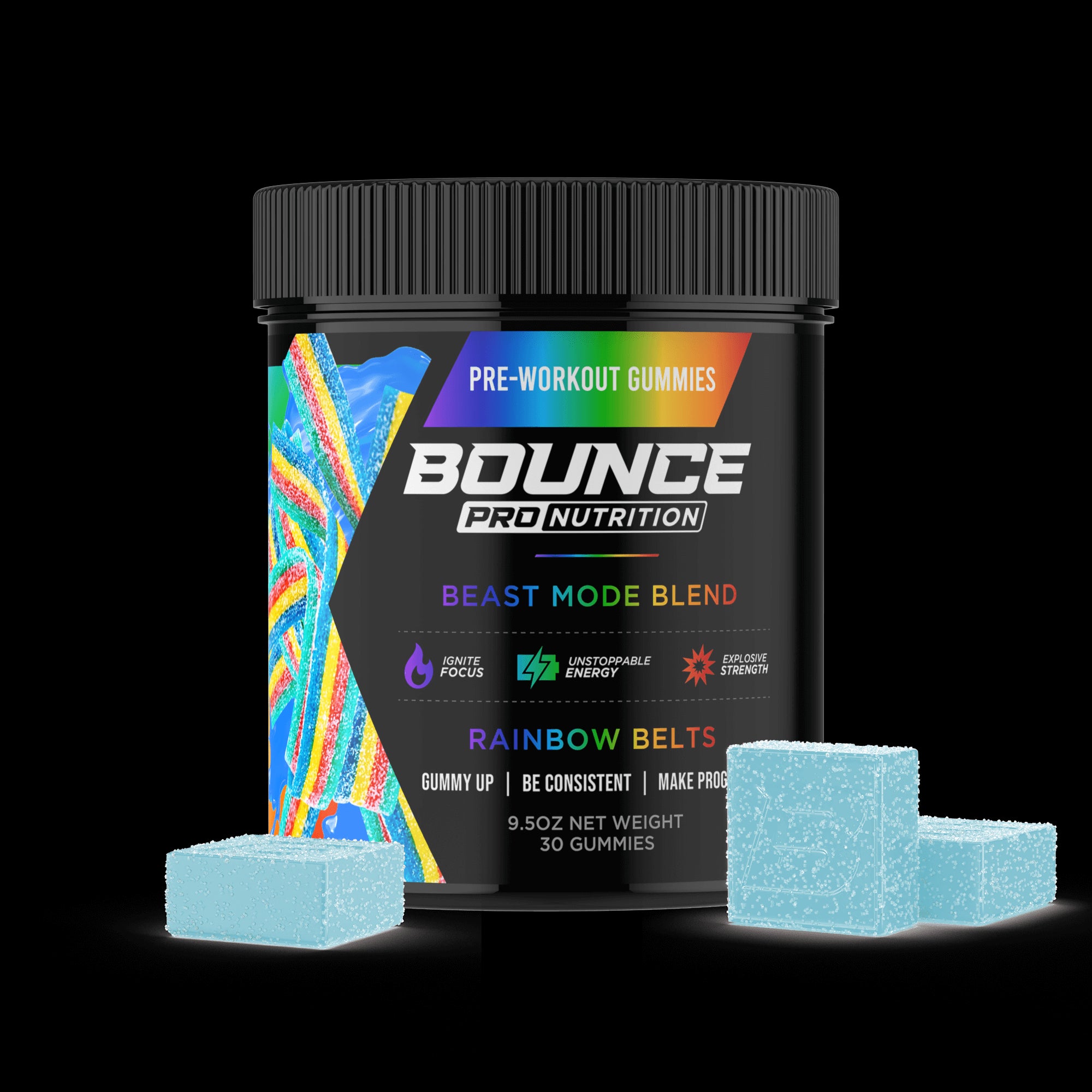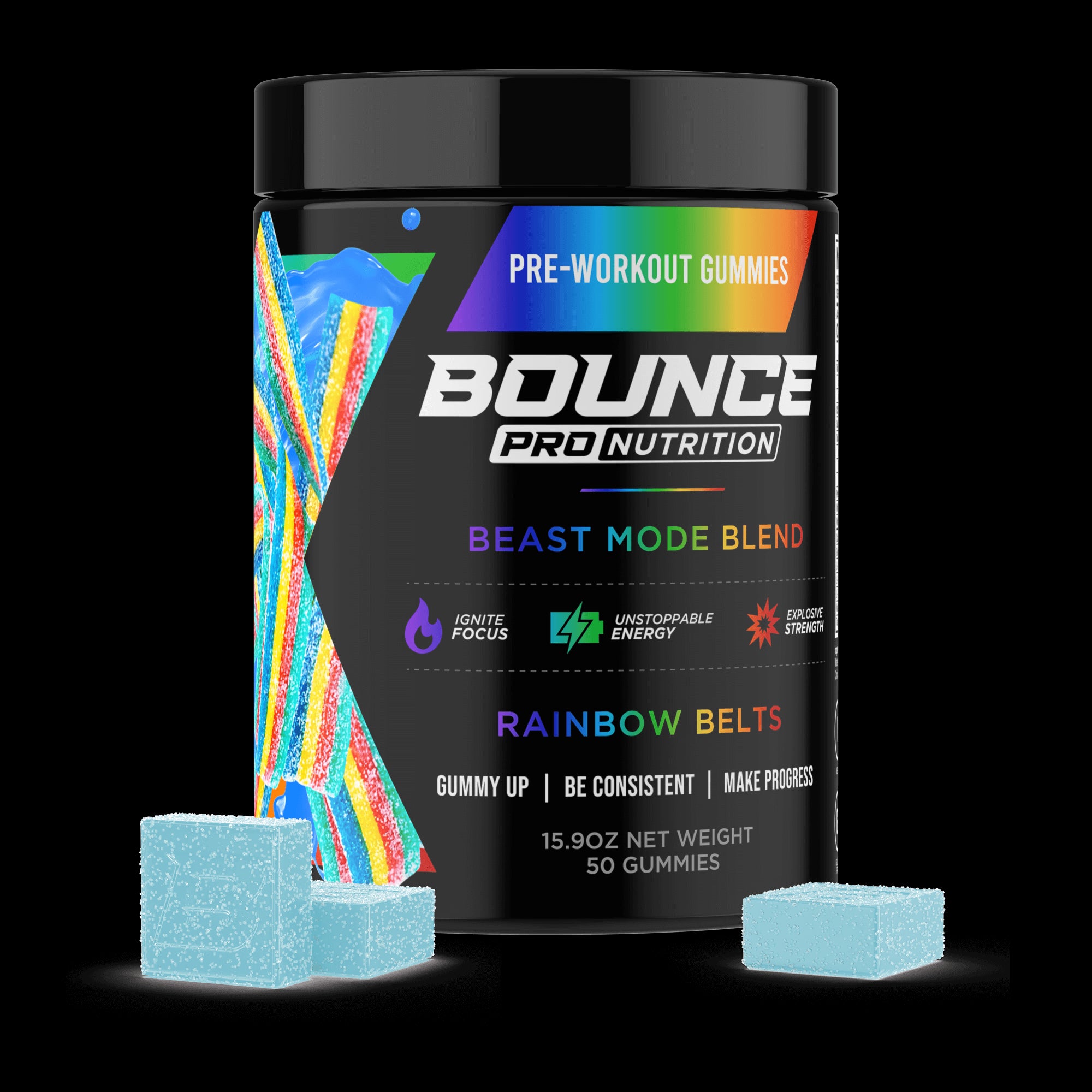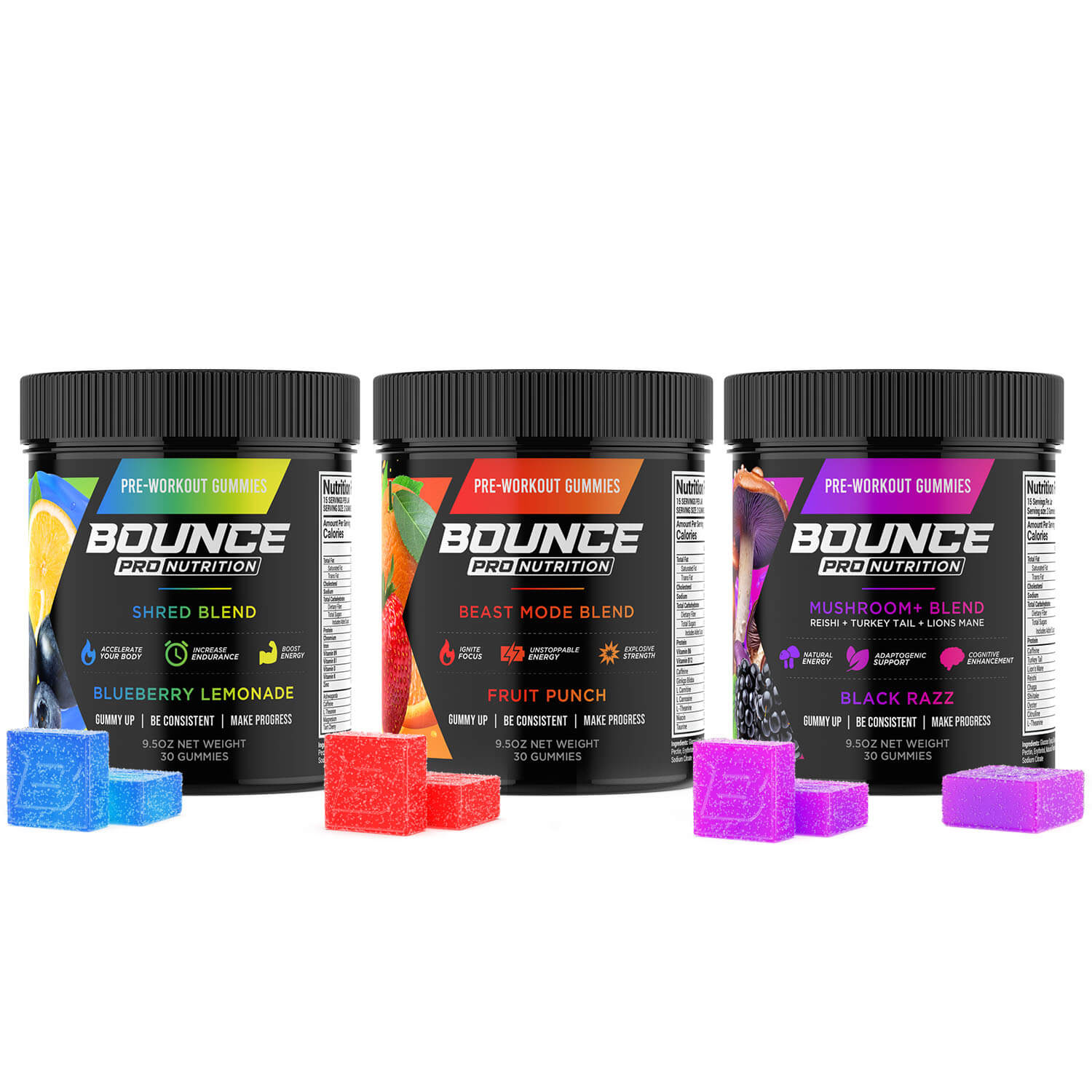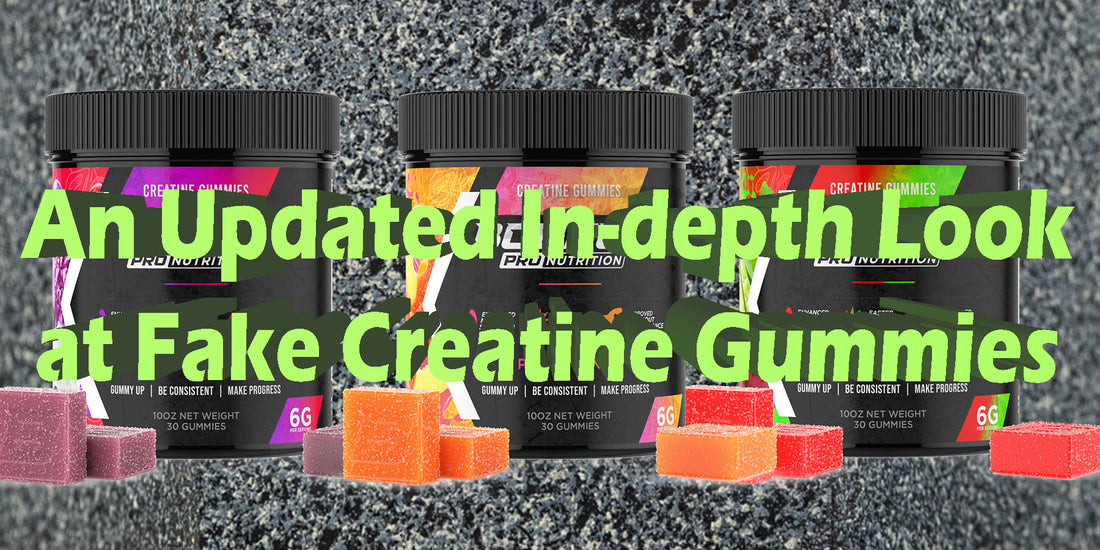The supplement industry has witnessed a surge in creatine-based products, with creatine gummies being one of the newest and most convenient forms available. As the popularity of creatine gummies grows, so does the problem of counterfeit and low-quality products. Consumers may fall prey to mislabeled or under-dosed supplements, unaware of the dangers posed by these deceptive brands.
Today, we'll explore the issue of fake creatine gummies, highlighting the shady practices of competitors in the market, including their forged Certificates of Analysis (COAs) and false lab results. Specifically, we’ll focus on some shocking discrepancies between the labeled creatine content and the actual amount in these gummies (competitors with fake lab results and COAs, like one had 87mg of creatine in a gummy instead of 1.5 grams).
We'll also take a look at how companies like Bounce Nutrition are fighting back against these fraudulent practices by maintaining transparency, product quality, and authenticity.
TO BUY CREATINE GUMMIES CLICK HERE
The Creatine Craze: Why Gummies?
Creatine, known for its ability to enhance strength, endurance, and muscle mass, has long been a staple in the fitness and bodybuilding worlds. The transition from powder and capsules to gummies adds convenience, making it easier for users to consume their daily dose without the mess or need for liquid. Creatine gummies are particularly attractive to athletes and everyday fitness enthusiasts who prefer a portable, easy-to-take option.
However, with the rise of this new format, there's a parallel increase in the number of companies cutting corners to get a share of the booming creatine gummy market. Some go as far as falsifying the amount of creatine in their products, while others create fake lab reports to mislead consumers.
False Claims and Deceptive Practices in the Industry
The idea of creatine gummies containing far less creatine than advertised is alarming, but unfortunately, it is becoming more common. Several brands are engaging in deceptive marketing tactics, with some providing fake lab results or even tampering with COAs to back up their claims. The Certificates of Analysis are supposed to provide consumers with accurate information about a product's purity and potency, but unscrupulous companies have found ways to forge or manipulate these documents.
This is particularly troubling, as consumers are trusting these COAs to ensure that they're getting what they paid for – like the example we provided earlier. Worse still, that company had manipulated lab reports to reflect the inflated numbers, leaving customers unaware of the scam.
Bounce Nutrition: A Commitment to Transparency
Amidst the storm of fake creatine products, brands like Bounce Nutrition are setting themselves apart by prioritizing transparency and quality. We at Bounce Nutrition have built a reputation for its accurate product labeling and lab-tested creatine gummies, which consistently meet the standards promised on their packaging.
What makes Bounce Nutrition stand out is its unwavering commitment to third-party testing. Each batch of gummies is sent to accredited labs that provide a true and unaltered COA. These reports are made available to customers on the brand's website, offering full transparency. In a market full of fakes and frauds, we ensure that consumers receive their promised dosage.
You see, it is this focus on honesty and reliability that has positioned Bounce Nutrition as a leader in the creatine gummy space. While other brands manipulate their figures, Bounce Nutrition delivers consistent results, empowering consumers with the right tools to achieve their fitness goals.
The Impact of Under-Dosed Creatine Gummies
Under-dosed creatine gummies can have significant consequences for consumers. Creatine is a scientifically proven supplement that has shown efficacy when taken at the right dosage, typically 3-5 grams per day. An individual relying on fake or under-dosed gummies will not achieve the benefits they expect, which can lead to frustration, wasted time, and missed fitness goals.
Worse still, fake creatine gummies might contribute to unintended side effects. Some manufacturers add fillers or undisclosed ingredients to their products, which can result in digestive issues or allergic reactions. Consumers may also unknowingly exceed safe limits of other ingredients because of the discrepancies in labeling.
In a world where people are investing in supplements to enhance their performance, false claims about creatine content lead to broken trust. Fitness enthusiasts may find themselves questioning the entire supplement industry if more brands engage in deceptive practices.
Common Red Flags in Fake Creatine Gummies
The rise of fake creatine gummies has led to the need for consumers to be more cautious when shopping for supplements. Knowing how to identify fake products by these specific red flags, can help buyers avoid falling victim to these scams:
- Unrealistic Pricing: If a creatine gummy product is significantly cheaper than other reputable brands, it’s worth raising an eyebrow. Quality creatine, especially in gummy form, comes at a cost due to the ingredients, production, and testing processes involved. If a deal seems too good to be true, it probably is.
- Lack of Transparency: Trusted brands are open about their sourcing, testing, and product composition. If a company doesn’t provide access to COAs or third-party lab reports, that’s a major warning sign. Here at Bounce Nutrition, for instance, lab results are published, while many fake brands hide behind vague claims.
- Vague or Inconsistent Ingredient Lists: Carefully inspect the ingredient list on the packaging. A quality creatine gummy will clearly list creatine as the main active ingredient and provide the exact amount per serving. Fake brands might use ambiguous language or attempt to mislead with ingredients that mimic creatine’s effects without the same efficacy.
- Customer Reviews: Checking reviews and customer feedback can provide insight into a product’s authenticity. Look for consistent complaints about the product's effectiveness or side effects, as these could signal an under-dosed or fake supplement.
- Lack of Verified Testing: Legitimate companies will test their products at independent labs and provide results that show accurate dosages of creatine and other key ingredients. If a brand doesn’t mention its testing process, this could indicate falsified data or a complete absence of proper testing.
The Ripple Effect: How Fake Creatine Gummies Damage the Industry
Fake creatine gummies not only harm individual consumers but also tarnish the reputation of the supplement industry as a whole. When people buy into these scam products, they often leave disappointed by the lack of results or the adverse side effects. This leads to widespread distrust of supplements, making it harder for legitimate companies to build credibility.
For reputable brands like Bounce Nutrition, the challenge is not only to stand out among competitors but also to fight back against the growing skepticism in the market. To counteract the damage done by fake products, these companies must invest in rigorous testing, transparent marketing, and consumer education.
Unfortunately, the sheer volume of fake creatine gummies on the market means that even well-intentioned consumers can be tricked into purchasing low-quality items. The best way forward is for consumers to support trusted brands, like Bounce Nutrition, and remain vigilant in their search for genuine products.
What Can Be Done to Combat Fake Creatine Gummies?
As fake creatine products continue to flood the market, there are a few easy steps both consumers and the industry can take, in order to combat this problem:
- Regulation and Oversight: Increased regulation and industry oversight would help hold manufacturers accountable for false claims. As it stands, the supplement industry is not subject to the same stringent regulations as pharmaceuticals, allowing shady companies to operate with relative impunity. Stricter laws around labeling and testing could force more companies to play by the rules.
- Consumer Education: Educating consumers about how to spot fake products is crucial. By promoting awareness of COAs, lab testing, and product quality, the supplement industry can empower buyers to make informed decisions. Brands like Bounce Nutrition can serve as leaders in this education, showing the importance of transparency and consistency.
- Third-Party Testing Requirements: Mandatory third-party testing for all creatine supplements could help ensure that products meet the label claims. Independent labs provide unbiased reports, which brands could be required to display on their websites or packaging. This would create a level playing field for reputable brands and make it harder for fraudulent companies to mislead customers.
By knowing what to look for and understanding the deceptive practices employed by shady brands, you can avoid falling victim to fake creatine gummies. Again, stick with trusted names, demand transparency, and always check for third-party testing to ensure that your creatine supplement is as effective and safe as it claims to be.









